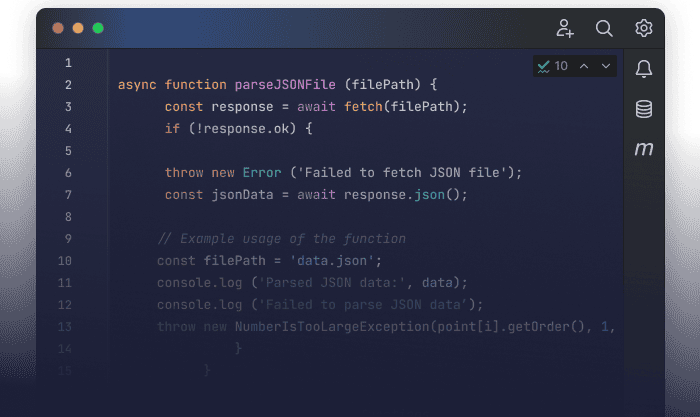Choosing the right platform for your website is crucial, and with so many options available, it can be overwhelming to decide. Two popular alternatives to WordPress are Wix and Shopify. While they both offer easy-to-use features, WordPress stands out as the superior choice for most businesses and individuals looking to create a website with long-term potential.
Here’s why WordPress is better than Wix and Shopify
1. Flexibility and Customization
WordPress offers an unparalleled level of flexibility. As an open-source platform, it gives you access to thousands of themes and over 58,000 plugins. This allows you to customize your website to fit your specific needs. Whether you’re creating a blog, a full-scale eCommerce site, or a portfolio, WordPress can be tailored to any business or personal goal.
- Wix: While Wix provides a drag-and-drop interface, its customization options are limited compared to WordPress. You’re often restricted to the templates provided by Wix, and while they are attractive, they don’t allow for deep customization or scalability.
- Shopify: Shopify excels in eCommerce but lacks the customization capabilities outside of that niche. It is not the best choice for those wanting more than just an online store.
2. Ownership and Control
With WordPress, you have complete ownership of your site. Since it is self-hosted, you control every aspect, from your domain to hosting services and beyond. This is essential for businesses that want to maintain full control over their website’s look, functionality, and future expansion.
- Wix: With Wix, your website is hosted on Wix’s servers, meaning you have less control over site performance and features. If you ever want to move away from Wix, migrating your website content can be difficult.
- Shopify: Similar to Wix, Shopify hosts your website. This limits your flexibility and makes it challenging to move away from the platform without a significant overhaul.
3. SEO Capabilities
Search Engine Optimization (SEO) is crucial for driving organic traffic to your website. WordPress is known for its SEO-friendly structure and supports numerous plugins, such as Yoast SEO, that provide detailed insights and recommendations for improving your site’s search rankings.
- Wix: While Wix does offer SEO tools, they are basic in comparison. Wix websites are often less optimized for search engines due to their coding structure, which could limit your reach and visibility.
- Shopify: Shopify has strong SEO tools for eCommerce, but if you need features beyond product sales, its SEO capabilities fall short compared to WordPress’s more extensive and flexible options.
4. Scalability
WordPress is scalable, making it suitable for businesses of all sizes. As your site grows, you can easily expand its functionality without sacrificing performance. With WordPress, you can handle everything from a small blog to a large enterprise site.
- Wix: Wix works well for small to medium-sized websites, but it struggles to accommodate growing businesses. You’ll eventually encounter limitations in terms of site performance and features.
- Shopify: Shopify is highly scalable for eCommerce businesses, but if your focus goes beyond online retail, Shopify may not offer the necessary tools for expansion outside of that niche.
5. Cost-Effectiveness
WordPress itself is free, though you’ll need to pay for hosting, a domain name, and any premium themes or plugins you choose. Despite these costs, WordPress remains cost-effective, especially considering its scalability and flexibility.
- Wix: While Wix offers affordable pricing plans, these can become limiting as you scale. You may also end up paying extra for certain advanced features.
- Shopify: Shopify can become expensive as you scale, with additional costs for apps, transaction fees, and themes.
6. Ecosystem and Community Support
WordPress boasts a massive global community. This means that no matter what challenge you encounter, there is a wealth of resources available, including forums, tutorials, and developers who can help.
- Wix: Wix has a smaller community and support network. While it provides adequate customer service, you won’t find the same level of third-party resources available as with WordPress.
- Shopify: Shopify has a strong support system for eCommerce, but it is focused on that niche. It lacks the broad community support that WordPress offers for general website building.
7. eCommerce Functionality
While Shopify excels in eCommerce, WordPress with the WooCommerce plugin offers a highly flexible and powerful eCommerce solution. You can build an online store within WordPress and integrate it with your content site, all on the same platform.
- Wix: Wix does offer eCommerce features, but they are limited compared to both WordPress with WooCommerce and Shopify.
- Shopify: Shopify is fantastic for eCommerce stores, but if your business involves other types of content or services beyond online selling, WordPress with WooCommerce might offer more versatility.
Conclusion
WordPress stands out as the best option for long-term website success, offering flexibility, control, and superior SEO capabilities. Whether you’re building a small blog, a business site, or an eCommerce store, WordPress is versatile enough to handle it all. While Wix and Shopify have their strengths, they fall short in terms of customization, scalability, and control, making WordPress the better choice for most users.
If you’re looking to create a website that grows with your needs, WordPress is your answer.













